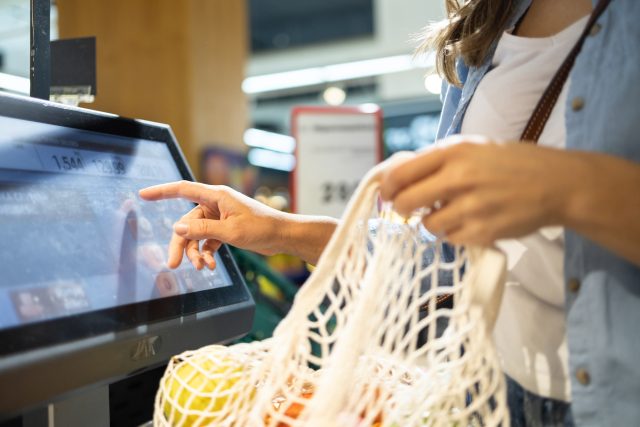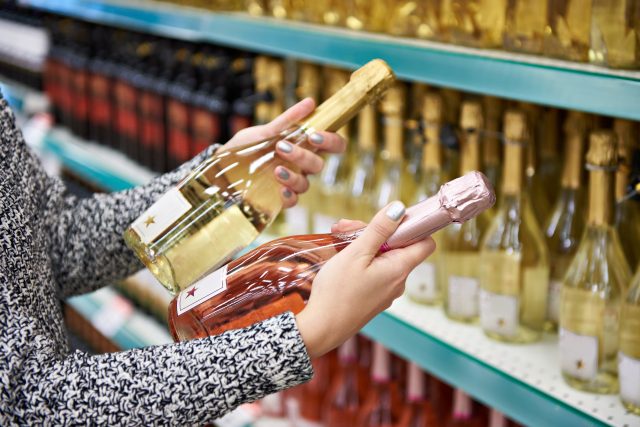This website uses cookies so that we can provide you with the best user experience possible. Cookie information is stored in your browser and performs functions such as recognising you when you return to our website and helping our team to understand which sections of the website you find most interesting and useful.
Should we be more worried about California’s self check-out ban?
A proposed ban on self check-outs in Californian retailers claims to be about preventing theft. But will it end up kiboshing alcohol sales? Sarah Neish investigates.

California is one of a handful of US states that allows consumers to buy the holy trinity of wine, beer and spirits from grocery stores and supermarkets, which is not always the case elsewhere in the US. Some states allow supermarkets to sell beer only, meaning consumers need to make a separate visit to a licensed liquor store should they wish to buy wine and spirits.
Now a proposed ban on self check-outs in California is on the cards, with Senator Lola Smallwood-Cuevas of Los Angeles pushing for a bill, ostensibly to combat theft in stores.
There is, however, increasing scepticism surrounding the motive behind the bill, with many claiming the law is actually designed to protect the jobs of union grocery workers in the face of growing artificial intelligence (AI).
The fact that the senator who proposed the bill spent decades organising labour unions would appear to lend weight to the argument, as does a provision written into the bill that any retailer who wants to “implement technology that significantly affects the essential job function or eliminates jobs or essential job functions of its employees” must first complete a detailed assessment before implementing the technology.
Polarising effect
The bill has polarised Californians since it was first proposed in February 2024, with labour unions largely in support of the legislation and retail groups tending to oppose.
The California Chamber of Commerce recently issued a statement saying:
“Customers love self-checkout for its convenience, but SB 1446 would add barriers to make it anything but – restricting what shoppers can purchase through self-checkout and forcing grocers to overstaff the area.”
The statement continued: “Although the bill claims to reduce retail theft, it would have the exact opposite effect, undermining a grocers’ ability to defend itself by disallowing locked items like razors from being eligible for purchase via self-checkout. In this way, SB 1446 attempts to take advantage of California’s very real concern about retail theft while actually hurting customers and grocers.”
How might the bill impact alcohol sales?
If it goes ahead, Bill SB 1446 would prohibit all California grocery and retail stores from offering a self check-out option for customers unless certain conditions are met. These conditions include having one (human) store worker monitor no more than two self check-out lanes (and have no other duties to complete while doing so); limiting self check-outs to 10 items or less; and disallowing certain products and goods from being purchased at self check-out.
And here’s the rub.
Along with products such as razors, these disallowed items would also include any “that require customers to provide a form of identification, including, but not limited to, alcohol and tobacco products.”
In other words, consumers will no longer be able to buy alcohol at self check-outs.
With wine sales continuing to slide in the US, the industry needs there to be as few roadblocks as possible to purchase. According to Silicon Valley Bank’s State of the Wine Industry Report 2024, total wine category sales in the United States ended 2023 with negative volume growth between -4% and -2%, with value growth stagnating at 0%.
The scale of impact a self check-out ban is likely to have on beverage alcohol sales boils down to the following question: to what extent is the purchase of alcohol products a convenience decision?
Speaking exclusively to the drinks business, Edoardo Daniele of financial services company Morningstar, which analyses data relevant to AB InBev to help guide investors, predicts that the effect will be negligible on the company.
“In our view the recent proposal to limit and regulate the surge of self-service checkouts in California (Bill SB 1446) will not have any material effect on the sale of alcoholic products,” he tells db.
Daniele believes that “the increasing adoption of self-checkouts across the US is not so much a response to customer preferences for fast checkouts but more about retailers’ efforts to reduce workforce and operating costs.”
He recognises, however, that the bill could result in higher costs for retailers at a time when the rising cost of labour and inflation is already “hurting operating margins”.
Inelastic demand
As the analyst considers beer and wine to be “non-discretionary products”, Daniele’s position is that “their sale is fairly immune to these changes, as demand from customers is generally inelastic.”
“We do not anticipate any relevant impact to AB InBev sales,” Daniele stresses, attributing this to the group’s “strong geographical diversification” and the fact that “North America sales represent only a quarter of global sales as of F2024. The net sales coming from the state of California are therefore a very small portion of AB InBev sales.”
Other major drinks companies contacted for this article, including Constellation Brands, which owns best-selling US beer brands Corona and Modelo, and Jackson Family Wines, one of California’s most prevalent wine producers, refused to comment on the proposed bill.

Setting a precedent
If a precedent is set in California, how long before other local jurisdictions follow suit? Should the bill be green-lighted in the ‘Sunshine State’ then it could open the door for other US states, and indeed international markets, to implement similar measures. It could be hard to slam the lid down once that can is open.
One trade association member told the drinks business off the record that such legislation “doesn’t tend to jump countries.” If it were to cross borders, they added, “I’m sure retailers would adapt accordingly to ensure that [alcohol purchases] remained convenient.”
Conor Dobbs, communications officer for the British Beer and Pub Association (BBPA) tells db that fortunately “this is not something that has been remotely suggested as far as I’m aware in the UK”.
According to Andrew Opie, director of Food & Sustainability at the British Retailers Consortium, convenience remains key.
“Retailers want to make shopping as easy as possible for all consumers, whilst operating all the appropriate controls on alcohol sales in line with licensing legislation,” he tells db.
There is also an argument to be made that as premium alcohol products already carry an extra layer of protection in the form of plastic security tags, they are perhaps the least likely items to be stolen by consumers at self check-out. And therefore sales of such bottles are at risk of being unfairly limited by Bill SB 1446.
Self check-outs are largely used by people in a rush, buying a small number of items and popping in to “grab” specific products, including a bottle of wine or beer. If faced with long queues at standard tills compounded by a shortage of retail workers, might consumers increasingly be put off spontaneous alcohol purchases altogether?
Related news
Tesco adds PiWi wine to Finest range

